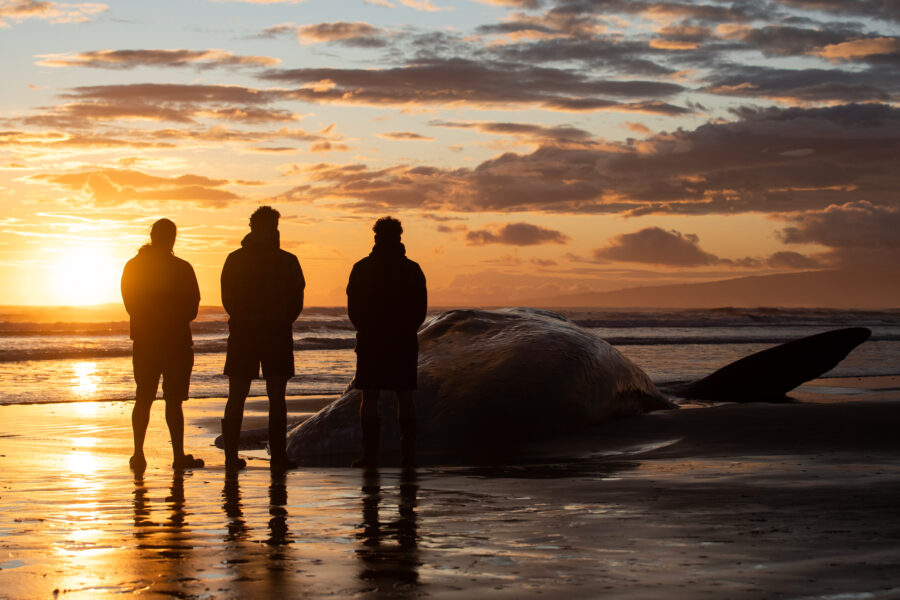More than 600 protestors were arrested during last week’s protests in Washington, D.C., where Indigenous and climate activists marched the streets and held a sit-in in the U.S. Department of the Interior demanding an end to oil and gas extraction on the Native lands and increased government urgency in tackling the climate emergency.
The 5-day People vs. Fossil Fuel demonstrations started on Oct. 11—Indigenous Peoples’ Day—with hundreds of climate activists and Indigenous tribespeople arriving in the nation’s capital from the sites of environmental disputes across the country, including Alaska, Minnesota and North Dakota.
On Friday—the last day of the weeklong protests—police arrested dozens of climate activists who locked arms as they staged a sit-in outside the U.S. Capitol asking the lawmakers to keep their promise to end the nation’s dependence on fossil fuels and act to slow climate change. U.S. Capitol Police reported arresting 78 people for obstructing traffic and crowding.
Earlier, on Thursday, demonstrators attempted to “occupy” the Department of Interior, which resulted in scuffles between protesters and security attempting to break the sit-in and hauling away protesters from the premises.
People vs. Fossil Fuels reported 55 protesters were arrested, and an Interior Department spokeswoman said at least one security officer was injured and taken to a nearby hospital.
“I am so disappointed that President Biden has said nothing all week about the actions that have been taking place,” said Donna Chavis, a native elder from the Lumbee tribe from eastern North Carolina who demonstrated against the environmental ills associated with large commercial poultry farms in Robeson County.
“He did not acknowledge what was happening right outside his door,” Chavis said.
This story is funded by readers like you.
Our nonprofit newsroom provides award-winning climate coverage free of charge and advertising. We rely on donations from readers like you to keep going. Please donate now to support our work.
Donate NowShe said the Biden-Harris administration had failed to make good on its promise to make environmental justice one of its cornerstones. Chavis added that, despite President Biden’s declaration of Oct. 11 as Indigenous Peoples’ Day, a lot more remains to be done. “That was a great symbolic gesture,” she said. “But we can’t stand on symbolism, we have to have hard action.”
At a news briefing on Thursday, White House press secretary Jen Psaki said the administration was “listening to advocates and people who have been elevating the issue of climate for decades.″ She presented Biden’s budget reconciliation plan and bipartisan infrastructure bill as evidence the administration is committed to addressing social and environmental issues.
“That’s in his legislative agenda that’s currently working its way through Congress now,” Psaki said. “It doesn’t mean his climate commitment ends once he signs this into law; it just means that’s what our focus is on now, and it will have a dramatic, important impact.″
About This Story
Perhaps you noticed: This story, like all the news we publish, is free to read. That’s because Inside Climate News is a 501c3 nonprofit organization. We do not charge a subscription fee, lock our news behind a paywall, or clutter our website with ads. We make our news on climate and the environment freely available to you and anyone who wants it.
That’s not all. We also share our news for free with scores of other media organizations around the country. Many of them can’t afford to do environmental journalism of their own. We’ve built bureaus from coast to coast to report local stories, collaborate with local newsrooms and co-publish articles so that this vital work is shared as widely as possible.
Two of us launched ICN in 2007. Six years later we earned a Pulitzer Prize for National Reporting, and now we run the oldest and largest dedicated climate newsroom in the nation. We tell the story in all its complexity. We hold polluters accountable. We expose environmental injustice. We debunk misinformation. We scrutinize solutions and inspire action.
Donations from readers like you fund every aspect of what we do. If you don’t already, will you support our ongoing work, our reporting on the biggest crisis facing our planet, and help us reach even more readers in more places?
Please take a moment to make a tax-deductible donation. Every one of them makes a difference.
Thank you,










